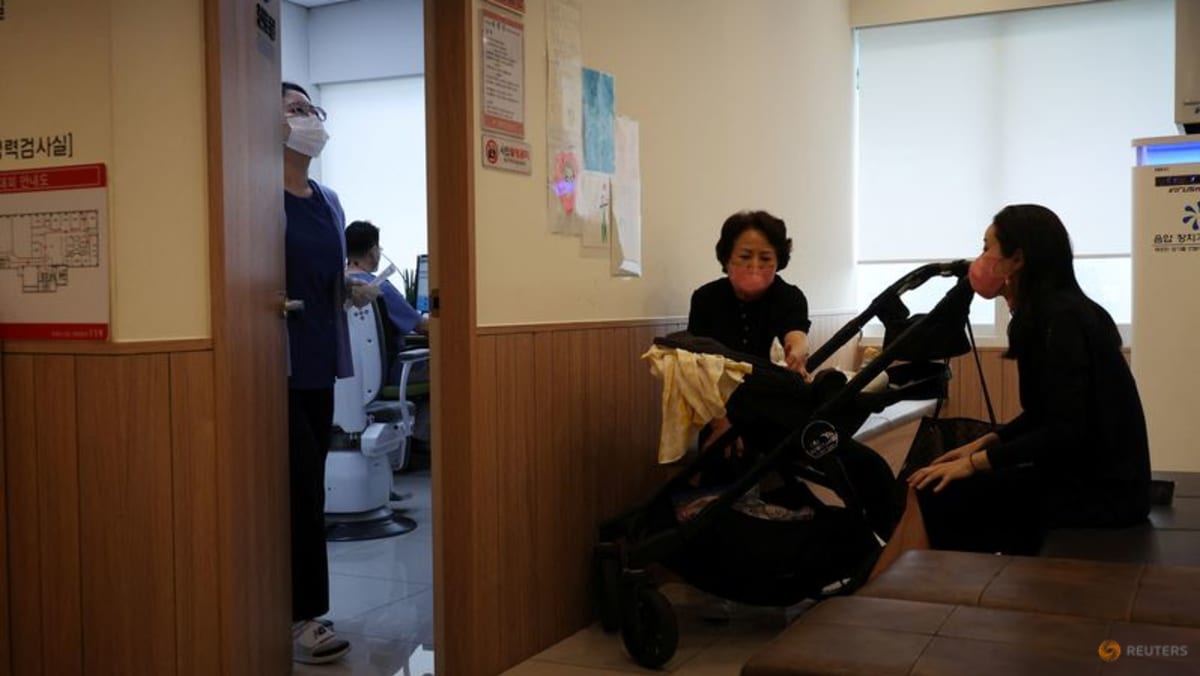
For parents, the shortage can mean long waits for treatment for sick children.
One recent morning, the waiting room at a hospital in Seoul's outskirts was packed with dozens of children, many on intravenous drips.
"We had to wait two weeks," said Lee Bo-mi, a 35-year-old mother with a sick 3-year-old boy, at the Healthy Children's Hospital.
"I was really scared. It felt like the sky was falling."
Dr Song Dae-jin at Korea University Guro Hospital said he worried that staff shortages could soon cripple his team's ability to provide emergency care.
"At this rate, we won't be able to last the year," Song said. "It's not a big deal if mild diseases are not seen for a day or two but the consequences of not seeing serious diseases or emergency patients in a timely manner can be devastating."
A five-year-old boy with a respiratory infection died in May after failing to find a hospital bed, sparking a public outcry.
"Patients dying while bouncing around multiple emergency rooms, dying when it's not a serious disease, it's a travesty," said Dr Choi Yong-jae, vice president of the Korea Children's Hospital Association.
"I'M WORRIED"
Doctors say the low fee problem is particular to paediatrics as the insurance system hasn't been revised to reflect fewer child patients. When more babies were growing up, paediatricians could sustain a low price, high volume model but that doesn't apply now.
"In foreign countries, the government pays enough to maintain the hospital even if you see 20 patients a day," said Dr Lim Hyun-taek, president of Korean Pediatric Association, who said fees had not been raised significantly for 30 years.
"But it's about S$10 per treatment in Korea so clinics have to see about 80 patients a day."
By comparison, it costs about A$335 for initial standard consultation with an Australian paediatrician, while observation at Nationwide Children's Hospital in the US costs $208 per hour, according to its website.
The health ministry said measures had been introduced this year on fees and insurance compensation to supplement "limitations". It said it had proposed more state-backed centres and requirements for major hospitals to maintain emergency paediatric treatment.
"We understand that there are opinions from doctors saying it is not enough to cope with difficulties in the field. The government plans to steadily implement and continue to supplement the announced measures,” it said.
Data from the Health Insurance Review and Assessment Service shows paediatricians are South Korea's lowest paid doctors, making 57 per cent less than the average doctor's salary.
https://news.google.com/rss/articles/CBMiZ2h0dHBzOi8vd3d3LmNoYW5uZWxuZXdzYXNpYS5jb20vYXNpYS9zb3V0aC1rb3JlYW4tZG9jdG9ycy1mbGVlLXBhZWRpYXRyaWNzLWxvdy1iaXJ0aC1yYXRlLWJpdGVzLTM2MDk0MzHSAQA?oc=5
2023-07-06 06:45:40Z
2199141461
Tidak ada komentar:
Posting Komentar